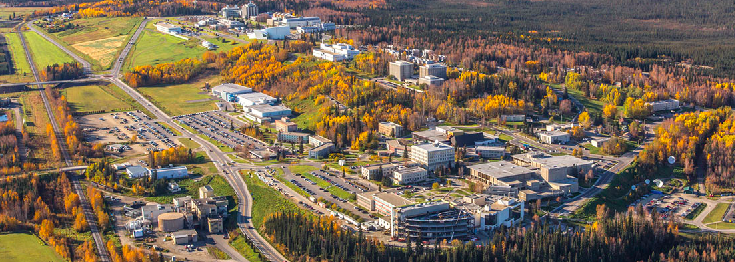By SHERI BURETTA
The University of Alaska is facing immediate and significant financial headwinds brought on by state budget cuts, enrollment and tuition declines and budget impacts visited upon us by the COVID-19 crisis.
And like the virus itself, this budget challenge is real, painful, and one that demands that we take swift action to protect our university and its critical mission and service to Alaskans.
The Board of Regents governs the university and it is our job, our responsibility to address this challenge now before it overtakes our ability to respond quickly. That means tough choices will be before us in June for consideration.
As in any crisis, the Board of Regents must reconcile the need to take action with a great number of unknowns and the uncertainty about how we must adapt and change. I share these concerns, but we must, and we will face them.
To begin with, we have a process for how to think about and ultimately make needed decisions – a process that started in early May when regents asked to better understand the financial impact of the COVID-19 pandemic on the university’s finances. Two weeks later, on May 13, President Johnsen provided us that information, and it was a sobering moment as we realized the serious budget gap we faced.
The committee then directed the president to present options to the Board of Regents at the meeting in June and asked that these options provide real change for transforming the university and solving the financial imbalance. Possible options for transformation came from many sources including those gathered from previous reviews, community campus directors, governance representatives, the chancellors and others. The options were reviewed by our leadership and by our business and academic councils. A list of final options was developed, which you can find at www.alaska.edu/bor/solutions.
An additional part of the process includes the discussions that the chancellors and the president are having with their respective communities, as well as the two public testimony sessions the board has and will hold to hear from anyone interested in providing us with input.
In addition to these opportunities, we welcome and encourage you to continued to provide ideas for our consideration.
I know there will be disagreement and concern about these options. Already we’ve heard many voices and many opinions about them, but the Board of Regents may need to make some tough decisions in June that will provide for transformative action. You will be integral to helping us solve the challenges to build a better future and position the university to be stronger and more sustainable.
The board may make immediate decisions or ask for more information with a decision to be made at a future meeting. Regardless, the choices will be tough and impact people, but the numbers paint a picture that we cannot ignore
The board understand that these actions will impact everyone, but we accept that change is necessary and we will take up the discussion and actions with our eyes wide open.
Our decisions will be informed by our revenue picture as well as by our best understanding of what our enrollment will be and what any future budget constraints will be, and while there is absolutely no pleasure in making these hard choices, I can promise you that our values will guide us in all of our actions, and that we will continue to put the well-being of our students, staff and faculty first.
Sheri Buretta is the chair of the University of Alaska Board of Regents.
